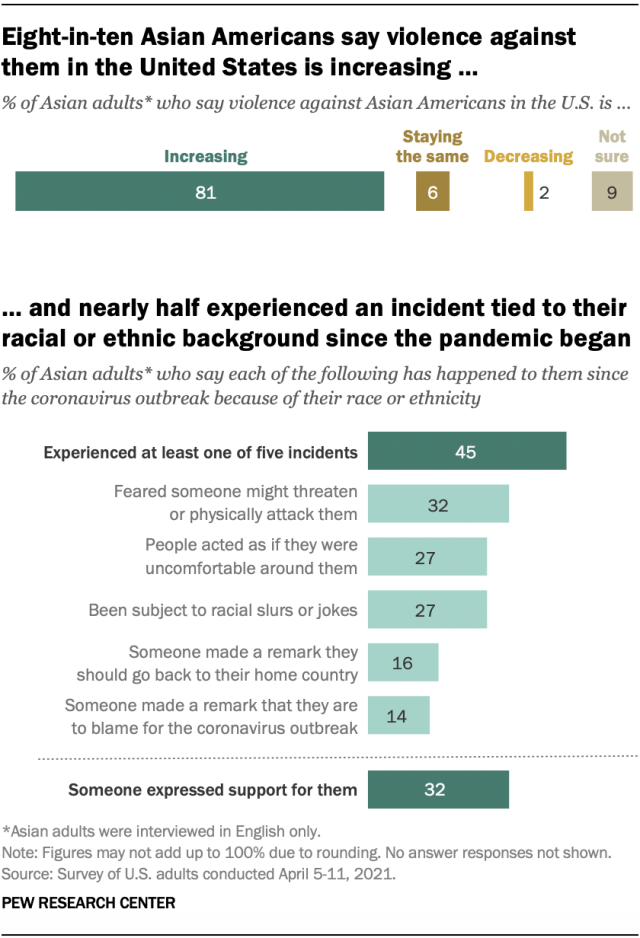Information
Along with the spike in Covid there has been a spike in racist terms, memes and news articles targeting Asian communities in North America. Asian Americans report being spit on, yelled at, even threatened in the streets. There was a stabbing in Montréal and increased violent targeting of Asian businesses. Asian Americans reported over 650 racist attacks in one week's span according to the Asian Pacific Policy and Planning Council. These incidents demonstrate rising racism against Asian communities in North America.
“Viruses know no borders and they don’t care about your ethnicity or the color of your skin or how much money you have in the bank,” said Dr. Mike Ryan, executive director of the World Health Organization’s health emergencies program.
Yet language can easily spark discrimination in times of fear, with dire consequences.
Articles
Stop Asian Hate: The Mental Health Impact of Racial Discrimination Among Asian Pacific Islander Young and Emerging Adults during COVID-19
The objective of this presentation is to understand the impact of the pandemic on API mental health using large-scale data, by evaluating 8 ABSTRACT Health Services Research pre-pandemic (Fall 2019), initial months of the pandemic (March-May 2020) and recent pandemic (Fall 2020) trends in API mental health and treatment utilization, as well as discussing the public health implications in higher education settings for API student populations.
Engaging Asian American Communities During the COVID-19 Era Tainted With Anti-Asian Hate and Distrust
COVID-19 has created disproportionate burdens for Asian Americans,1-4 the fastest-growing racial group by immigration in the United States.5 "Asian American" refers to a diverse population of over 40 cultural groups with distinct languages.6 California has the highest number of COVID-19 cases,7 and is also home to the country's largest number of Asian Americans, constituting 16% of the state's population.5 Structural barriers, including low health care access and undertesting, have contributed to excess COVID-related mortality and burdens among Asian Americans.
Asian Americans, Affirmative Action & the Rise in Anti-Asian Hate
Asian Americans have taken center stage in the latest battle over affirmative action, yet their voices have been muted in favor of narratives that paint them as victims of affirmative action who ardently oppose the policy. Bridging theory and research on immigration, stereotypes, and boundaries, I provide a holistic portrait of SFFA v. Harvard and focus on Asian Americans’role in it.
